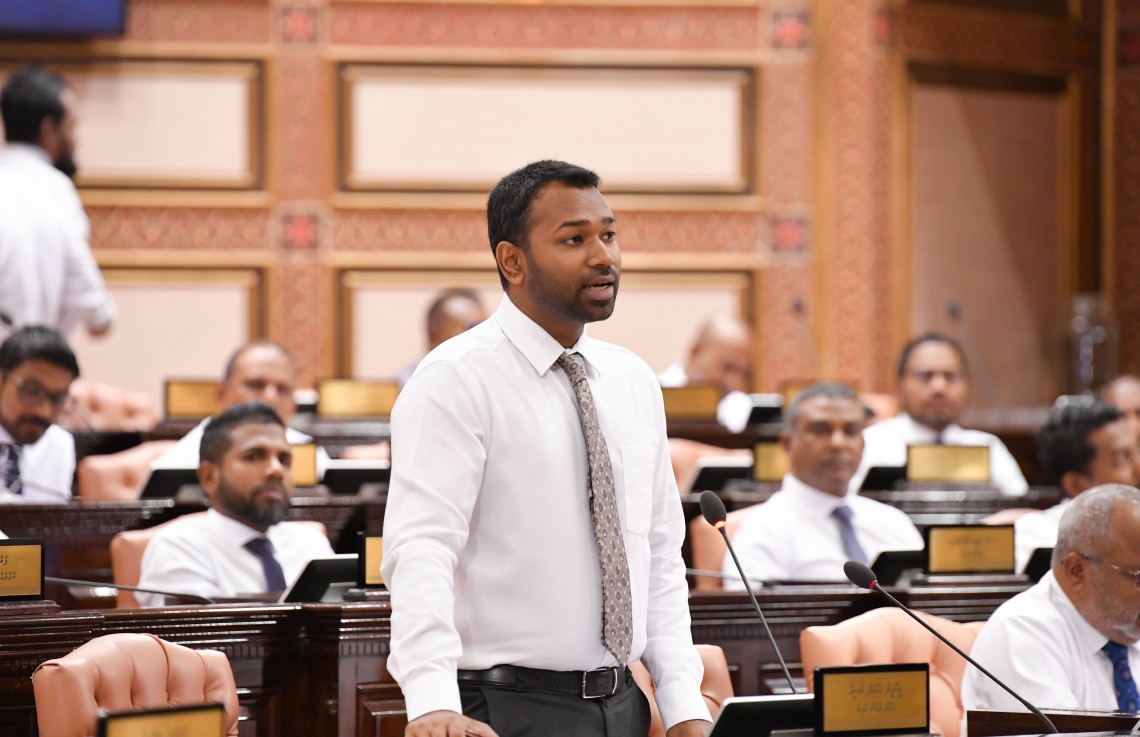
Speaker of Parliament Abdul Raheem Abdulla has said today that MPs must not say in parliament things that defame State institutions or make statements that cannot be proven in court.
Speaker of Parliament Abdul Raheem Abdulla has said today that MPs must not say in parliament things that defame State institutions or make statements that cannot be proven in court.
The Speaker made this remark in relation to an emergency motion submitted by opposition Maldivian Democratic Party (MDP) MP Meekail Ahmed Naseem regarding NSPA being awarded office space in floors rented by MMTV, a media outlet registered last week.
Abdul Raheem stopped Meekail from speaking about the matter, saying that if Meekail insists on talking about this, he would be revoked the opportunity to speak in today's debate. Abdul Raheem said that this is because false statements which cannot be proven in a court of law and which could defame State institutions cannot be made in Parliament.
"Here, we refer to members as 'Honourable'. So all honourable members should keep their actions in a manner that will retain their honour," the Speaker said.
With this, the Speaker did not allow Meekail to speak further.
The emergency motion regarding the NSPA issue submitted by Meekail today was also rejected, citing it did not align with Article 197 of the parliament's regulations. This article states that emergency motions must be based on facts.
In the Maldives Constitution, in Article 90 (a) as Parliament privileges, it states that "No member or other person shall be liable to any proceedings in any court, and no person shall be subject to any inquiry, arrest, detention or prosecution, with respect to anything said in, produced before, or submitted to the People’s Majlis or any of its committees, or with respect to any vote given if the same is not contrary to any tenet of Islam".
Denied the chance to speak on the NSPA issue, Meekail retorted that the parliament has been made into a puppet of the government.
"[We] are being stopped from talking about theft and corruption, in direct contravention of Parliament regulations," he said.
